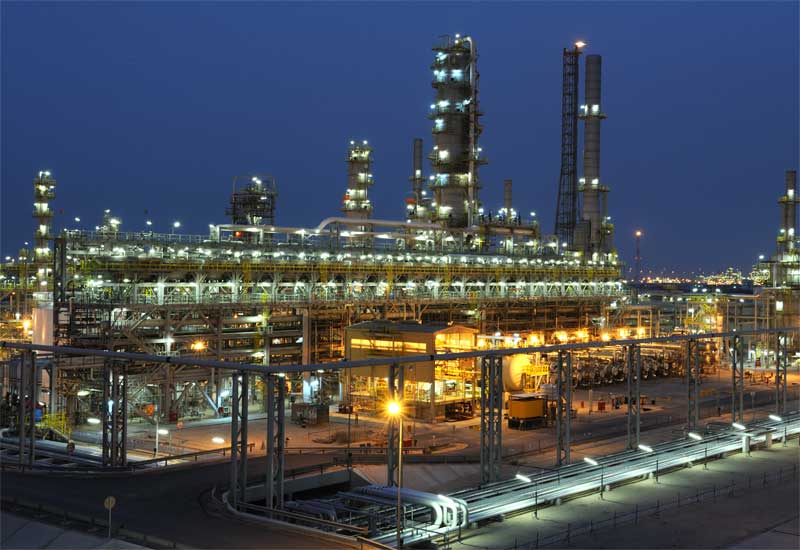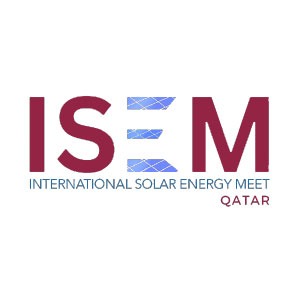- ASRY Awarded 2024 RoSPA Gold Medal in Health and Safety
- BP ponders shifting focus away from renewables, say sources
- QatarEnergy enters 10-year naphtha supply agreement with Japan’s ENEOS Corporation
- The International Energy Agency expects oil demand growth to slow in 2024
- The International Monetary Fund re-selects Kristalina Georgieva as its director
- Libya to target producing 1.4 million b/d by end 2024
- TotalEnergies launches the Marsa LNG project and deploys it multi-energy strategy in Oman
- H.E. Minister Al-Kaabi: Demand for oil and gas will continue for long; we have to be responsible, and Qatar is doing its part
- Egypt to stop exporting LNG starting from the beginning of May 2024
- QatarEnergy selects Nakilat to own and operate 25 conventional LNG vessels

Nathalie Martin-Bea Mardinian interviews Mr. Philippe Guys – Managing Director of Total E&P Qatar

NMB: Total is present in Qatar since 1936, pioneering many of the activities in the energy sector Qatar, and since then Total never left Qatar. Is this how sustainable development starts for Total, with long term commitment?
Phillipe Guys: Thank you for reminding this historical fact and the proudness of TOTAL to have never left Qatar since 1936. The “Companie Francaise des petrole “at that time, was a partner in the Iraq Petroleum Company which came to Qatar for the first drilling on the Dukhan field. Indeed, when we talk about sustainability, this example is a good one as the Dukhan field is still producing 3oo.ooo barrels per day. We are here in Qatar, as in much other country to support the country’s natural resources development preserving both country and companies’ long term economics and sustainable interests.
NMB: Tell us about your activities in Qatar and the synergies you have developed by participating in exploration, refineries, petrochemicals, being truly cross-functional and sometimes pioneer in Qatar.
PG: Total has been present in all the branches of the group, that is to say not only in exploration / production but also in the petrochemical and refining sectors as well as on the marketing of lubricants in the country .. We were effectively the first – to participate in a petrochemical complex as since 1975 we are partner with the Qatari Government in a company (QAPCO) who will produce soon 720 KTPA of polyethylene after having over the years regularly increased by 3 the total production capacity of the plant. Total has also more recently developed another petrochemical JVs (Qatofin) producing 450 KTPA of LLDPE giving to Qatar a worldwide petrochemical dimension …Total has been also the first foreign company since many years to discover and develop a new oil field in 1991 (Al Khalij field) . Later on in 1996 Total was once again the main and first partner with Qatar Petroleum in the development of the first liquefaction plant of Qatargas 1 which is producing now almost 10MTPA of LNG
With the Dolphin project Total was once again a pioneer in developing the first pipe gas export project within three GCC Countries This project allows to export gas to the UAE and to Oman The gas coming from Qatar is routed through a pipeline of 360 km across the Gulf waters to feed a gas-fired power plant in Taweela.( UAE)
With our participation in the 146 Kbpd condensate Ras Laffan Refinery
one can easily understand why we are saying that Total is present through the entire chain of the energy sector .The pioneering aspect of most of our projects indicate clearly our willingness to develop and work for the long term benefit and sustainability of the country
NMB: How would you describe the evolution of the energy sector in Qatar?
PG: The evolution of the energy sector has been strongly linked to the worldwide growth in demand for energy sources and to the progress of the gas liquefaction technology. With this technology you no longer need to have huge pipes that feed markets as does the European side of Russia. Here you liquefy the gas, you fill ships and then these vessels can go anywhere in the world. It allows Qatar to stay flexible with its production and sales, maximizing by this mean the value of Qatar’s natural resources. The second reason for the evolution of the energy is also related to the fact that although gas is a fossil fuel, it is one of the cleanest sources of energy. The real change has occurred when Qatari’s, late 90s early 2000s, under the wise guidance of the HH Sheikh Hamad bin Khalifa al Thani ,had this vision of a global demand for energy that they would be able to meet partially with their gas. They consequently took some calculated risks and embark in these huge gas projects development which led them at the end of 2010‘s milestone of 77 million tons/year production capacity.
NMB: Sustainable development is also to push the research and innovation and large scale projects in Qatar have led companies and their research teams to go beyond what they knew. Tell us what has the development of the energy sector in Qatar brought to TOTAL?
PG: It is obvious that the size of reserves that are associated with the North field (the third biggest in the world) was a stron incentive to design Liquefied Natural Gas trains on a scale never seen before. The largest train at the time were 3.5 to 4 million tones and in order to optimize and streamline the operation of this gas, the idea of having trains of almost 8 million tones has emerged .In reality it’s not just a matter of multiplying by 2 the elements or the process being used, it took a full re-engineering of design, conceiving much larger tankers, etc … Total with a strong position and knowledge of gas liquefaction – we are second in trading and LNG in the world – participated in the development and implementation of these solutions. On these projects the first largest LNG trains in the world, more than 50 technological innovations were necessary; these technological innovations are immediately transferable to any development which utilizes the same process and tools…
NMB: In December 2010 Qatar Petroleum celebrated the milestone of a production capacity of 77 million tones of LNG per year, but the Minister also reconfirmed that there would be no new projects for now. So what is interesting for IOCS now in Qatar … Petrochemicals? And under which partnerships conditions will IOCs continue to invest in Qatar?
PG: Downstream activities such as refinery and/or petrochemicals as well as exploration activities are most likely to be the future short term next activities in Qatar.
Any international and business company will engage in new projects when foreseeing an economic interest.. From that point, if there is no economic reason to develop, invest, and take risks in a project because the conditions are too stringent, we will not invest. I think that a wise government, concerned about the future of their country, will offer conditions in order to maintain sufficiently height the interest of international companies in working and investing with them.
The commitments we make with countries are most of the time and mainly for very long terms, and force us to always have this prudent and economical vision for the long term benefit of our investments and for our host country. I think Qatar is in this dynamic and that Total like other companies will always continue to invest here.
TOTAL IN QATAR
Total is France’s largest corporation and the world’s fourth largest oil and gas company. It has had a strong presence in Qatar for 70 years.
Today, Total has the most diversified interests in Qatar and is active in all stages of the energy industry, from upstream (oil and gas exploration and production) to downstream (refining and marketing). Total is also a leading player in petrochemicals, as well as intermediate and specialty chemicals.
Total operates the offshore Al-Khaleej oil field, discovered in 1991, where the group uses highly innovative technologies to optimise the recovery rate of a very complex reservoir.
Total was one of the founding partners of Qatargas 1, the first liquefied natural gas (LNG) project developed in Qatar. Qatargas 1 started operations in 1996 and has a current capacity of 10 million tonnes per annum of LNG. Total holds a 20% interest in the upstream part of the project and a 10% interest in the liquefaction plant.
In 2006, Total expanded its involvement in the LNG industry in Qatar with the acquisition of a 16.7% equity interest in Qatargas 2 Train 5. Total also signed Sales and Purchase Agreements for the purchase of up to 5.2 million tonnes per year of LNG from Qatargas 2 for a period of 25 years for four destinations (France, the UK, the US and Mexico).
In addition, Total is one of founding partners of the Dolphin project, the largest natural gas project ever developed between two countries in the Gulf. In 2001, Total, jointly with Mubadala Development Company of Abu Dhabi, entered into a Production Sharing Agreement with Qatar Petroleum (QP) for the sale of 2 billion cubic feet per day of North Field gas to the United Arab Emirates (UAE). Total holds a 24.5% interest in the Dolphin Project, which involves the production and processing of natural gas from Qatar’s North Field, and transportation of the gas by a 370-km sub-sea pipeline to the UAE for delivery to customers. Gas production from the Dolphin project started in July 2007 and deliveries reached 2 billion cubic feet per day since 2008 when the facilities are fully operational.










